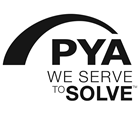Cookie Consent
This site uses cookies to store information on your computer. Without consent certain enhanced features will not be available and future visits may require repeated consent, so it is recommended to accept the use of cookies. Visit the AHLA Privacy Policy for more information.
Physicians and Hospitals Law Institute 2022
Schedule
You must be logged in to access this content.
Conference Accessibility and Special Needs
AHLA is committed to ensuring equitable access to our educational content. We are continually improving the user experience for everyone and offering accessibility accommodations for our in-person conferences.
Thank You to Our Physicians and Hospitals Law Institute Sponsors
If your organization is interested in sponsoring AHLA's Physicians and Hospitals Law Institute, please contact Valerie Eshleman.









